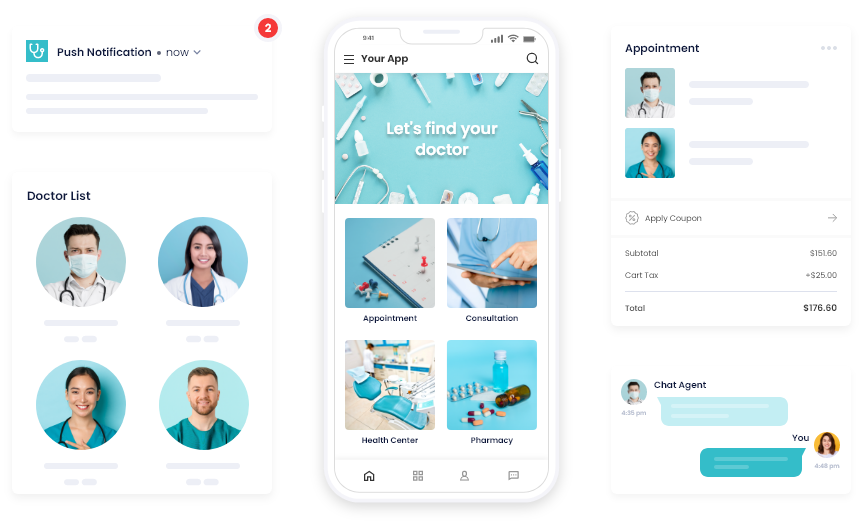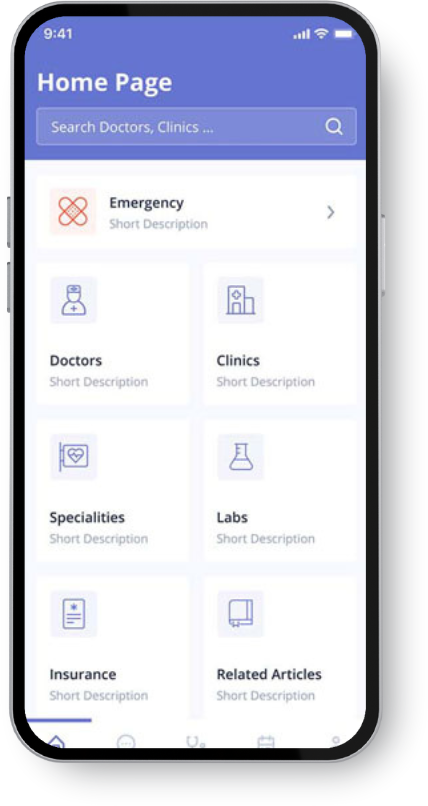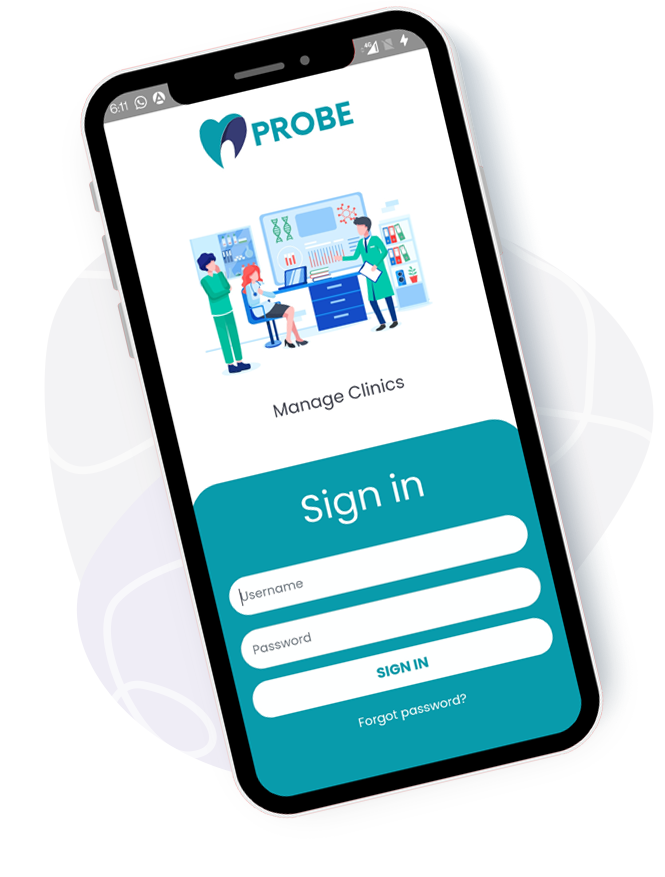The Future of Healthcare: Ingenious Solutions with a Mobile App for Clinics
The Future of Healthcare: Ingenious Solutions with a Mobile App for Clinics
Blog Article
The Future of Healthcare: Why Clinics Need a Mobile App Today
As the healthcare landscape continues to evolve, facilities deal with mounting stress to adapt to individual expectations for higher ease and accessibility. The combination of mobile applications can offer as a vital strategy for enhancing patient engagement and streamlining procedures.
Altering Person Expectations
As the landscape of healthcare develops, client assumptions are undertaking a considerable transformation. Today's people are progressively looking for ease, ease of access, and personalized care.
In addition, patients are ending up being much more notified and encouraged, frequently looking into treatments and problems on the internet before appointments. This increased recognition is coupled with a demand for openness in health care procedures, consisting of cost estimates and therapy options. As a result, carriers are compelled to adapt by embracing electronic devices that boost the individual experience.
The assumption for timely and efficient communication has never ever been higher, with many individuals taking into consideration responsiveness a crucial element of quality care. mobile app for clinics. In this advancing landscape, medical care organizations must acknowledge these changing expectations and take advantage of mobile applications to foster a much more patient-centric technique, making certain that they not just fulfill but surpass the criteria established by today's informed customers
Enhancing Individual Involvement

Mobile applications assist in communication in between people and healthcare suppliers, making it possible for real-time consultation scheduling, tips for drug adherence, and straight messaging attributes. These capabilities not just boost comfort yet additionally develop a feeling of accountability amongst people. Furthermore, mobile applications can provide academic material customized to private requirements, aiding people better comprehend their problems and therapy alternatives.
The combination of gamification components within health care applications can also encourage clients to participate in healthy and balanced habits, reinforcing positive way of life changes. By tracking progress and fulfilling accomplishments, clients are most likely to remain dedicated to their wellness goals. Inevitably, improving patient engagement through mobile applications results in boosted wellness end results, greater client satisfaction, and a more collaborative healthcare experience. Centers that prioritize this facet will likely see a considerable influence on the top quality of treatment delivered.
Simplifying Center Workflow
Streamlining facility operations is crucial for improving process effectiveness and maximizing client treatment. The execution of mobile applications can significantly reduce management concerns, allowing doctor to focus a lot more on client communications. By automating consultation organizing, person check-ins, and invoicing procedures, clinics can reduce wait times and improve overall operational effectiveness.
Mobile apps likewise assist in real-time accessibility to patient records, enabling healthcare experts to make educated choices swiftly. company website This immediacy not only boosts the quality of care but additionally minimizes the chance of mistakes associated with misplaced or outdated info. Additionally, leveraging mobile technology sustains an extra orderly approach to taking care of patient follow-ups and treatment strategies, guaranteeing that no critical actions are ignored.
This permits for timely replenishment and helps prevent disturbances in person treatment due to stock shortages. By incorporating these capabilities into their day-to-day procedures, centers can produce a use this link more effective and cohesive environment, inevitably leading to enhanced patient end results and complete satisfaction.
Improving Communication Networks
Efficient communication is frequently cited as a keystone of high quality health care shipment. In today's busy clinical atmosphere, mobile applications can dramatically enhance communication channels between facilities, individuals, and healthcare companies. By integrating mobile applications into their operations, clinics can facilitate real-time communications, making sure that individuals receive timely details concerning their visits, test results, and therapy strategies.
Mobile apps likewise equip people to connect directly with their healthcare groups through safe and secure messaging features. This direct line of communication promotes a sense of interaction and permits immediate clarification of problems, which can result in far better adherence to therapy protocols. In addition, press notifications can advise people of upcoming visits or drug timetables, lowering no-show rates and boosting total health and wellness outcomes.

Staying Affordable in Medical Care
In a quickly evolving healthcare landscape, organizations have to prioritize technology and adaptability to keep an affordable edge. The integration of mobile applications into health care services is no more optional; it is necessary for clinics aiming to boost person interaction, simplify procedures, and improve total service shipment.
As individuals progressively depend on digital platforms for health and wellness administration, centers that fall short to adopt mobile modern technology threat falling back. A properly designed mobile application can provide attributes such as consultation scheduling, telemedicine assessments, and access to clinical documents, offering people with benefit and promoting commitment.

Rivals are additionally purchasing mobile solutions, so remaining visit this site ahead needs continuous improvement and remaining informed about technological advancements. Facilities must not only execute mobile applications yet also take part in normal updates and improvements. Eventually, the successful integration of mobile technology will certainly differentiate forward-thinking healthcare organizations and set the standard for patient-centric treatment in a digital world.
Final Thought
In conclusion, the integration of mobile applications in facilities is important to address the developing landscape of client assumptions. Inevitably, the critical execution of mobile apps stands for a vital action toward supplying obtainable and customized medical care, therefore meeting the needs of today's equipped people.
Inevitably, enhancing patient engagement through mobile applications leads to enhanced health outcomes, better patient satisfaction, and a more collaborative healthcare experience.Mobile applications likewise promote real-time accessibility to person records, enabling healthcare experts to make educated choices quickly. In today's hectic clinical environment, mobile applications can substantially improve communication networks in between centers, patients, and health care companies.Mobile applications also empower clients to communicate directly with their health care teams via safe messaging features. Eventually, the strategic execution of mobile applications represents a critical action towards delivering personalized and accessible healthcare, thus meeting the demands of today's empowered clients.
Report this page